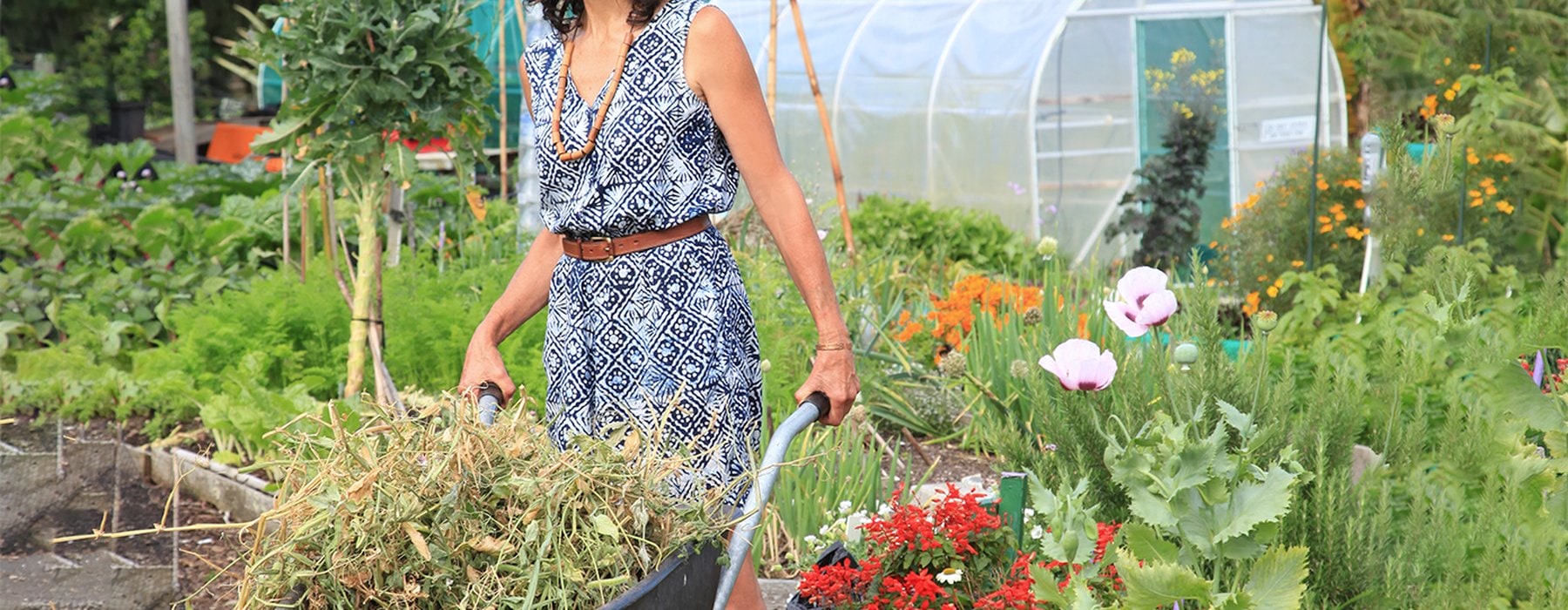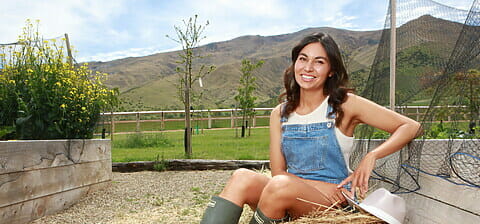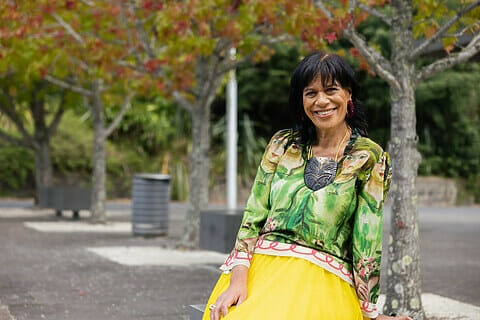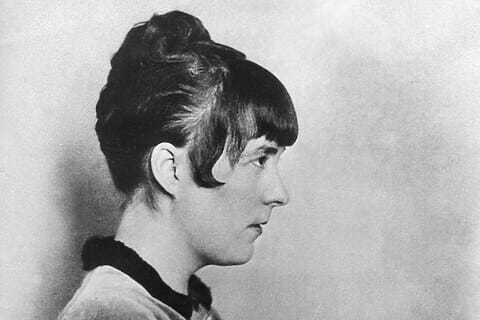Rachel Clare chats to composting queen and community garden educator Judy Keats about her transition from pattern-maker to permaculture and why she’s never looked back.
You wear three straw hats: running your company Green Sister, as market garden manager and volunteers leader for Auckland’s Kelmarna Gardens, and as a facilitator for The Compost Collective. Tell us a bit about what each job entails…
Judy: As Green Sister, I work as an educator, running sustainable gardening workshops for beginner gardeners based on permaculture methodology. Permaculture is a multi-disciplinary design strategy for integrated natural systems that’s guided by principles around caring for the earth; caring for each other; and sharing the surplus, making sure nothing goes to waste.
Kelmarna Gardens is a city farm and organic community garden. Volunteers work with me, mainly planting or harvesting, while learning all the processes in between. For me, it’s a playground – an organically certified safe space for all to participate and excel at becoming a master gardener, if that’s your calling. If it’s not, it’s a welcome retreat in which to reconnect with nature.
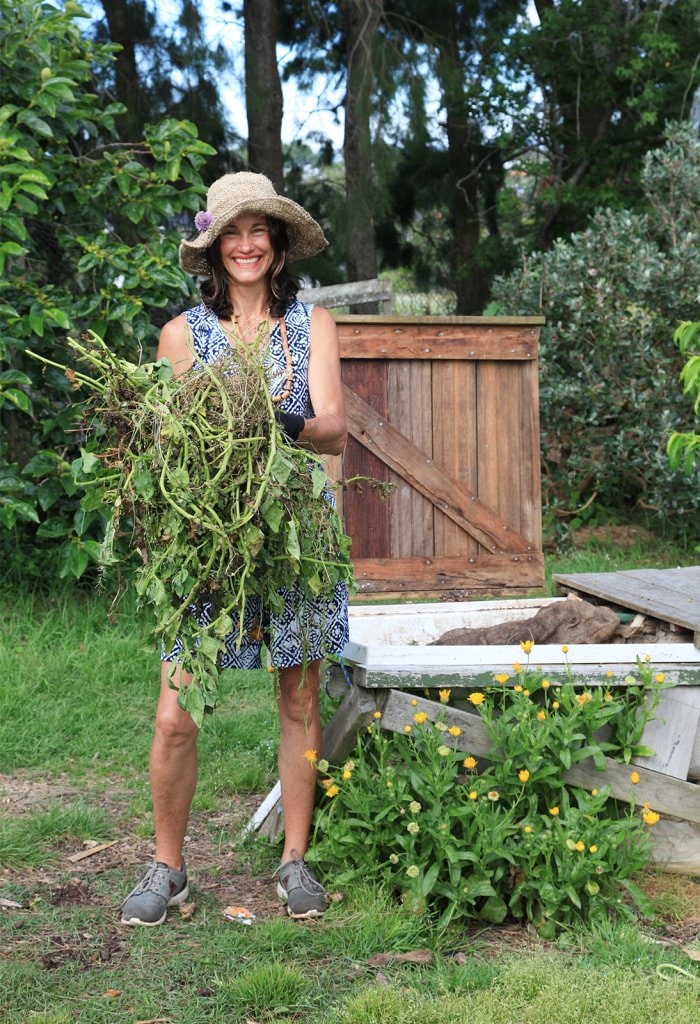
In my role as facilitator for Compost Collective, I work to encourage behaviour change for the benefit of individual households and the environment by educating people on three methods of processing their food waste: worm farming, bokashi and cold composting. If people can keep their food waste out of landfill and start viewing waste as a resource, we can create a cleaner atmosphere.
So what was your pathway into gardening?
I grew up in Tasmania, Australia. My grandparents had a quarter-acre section, with chickens, fruit trees, vegetables, berries and flowering plants, and Grandma grew food for the whole family. She was also a great sewer, and made most of her own clothes. She had a huge influence on me, so when I left home I studied fashion design, then started my own streetwear label in the early 2000s and went on to do pattern-making for quite a few major New Zealand labels.
A decade ago, I was pattern-making for Karen Walker, Trelise Cooper and Ricochet, but all that changed with the economic collapse. At the time, I was buying organic veges at the Takapuna Market every weekend, and the woman I bought my veges from invited me to work on her farm in Kumeu.
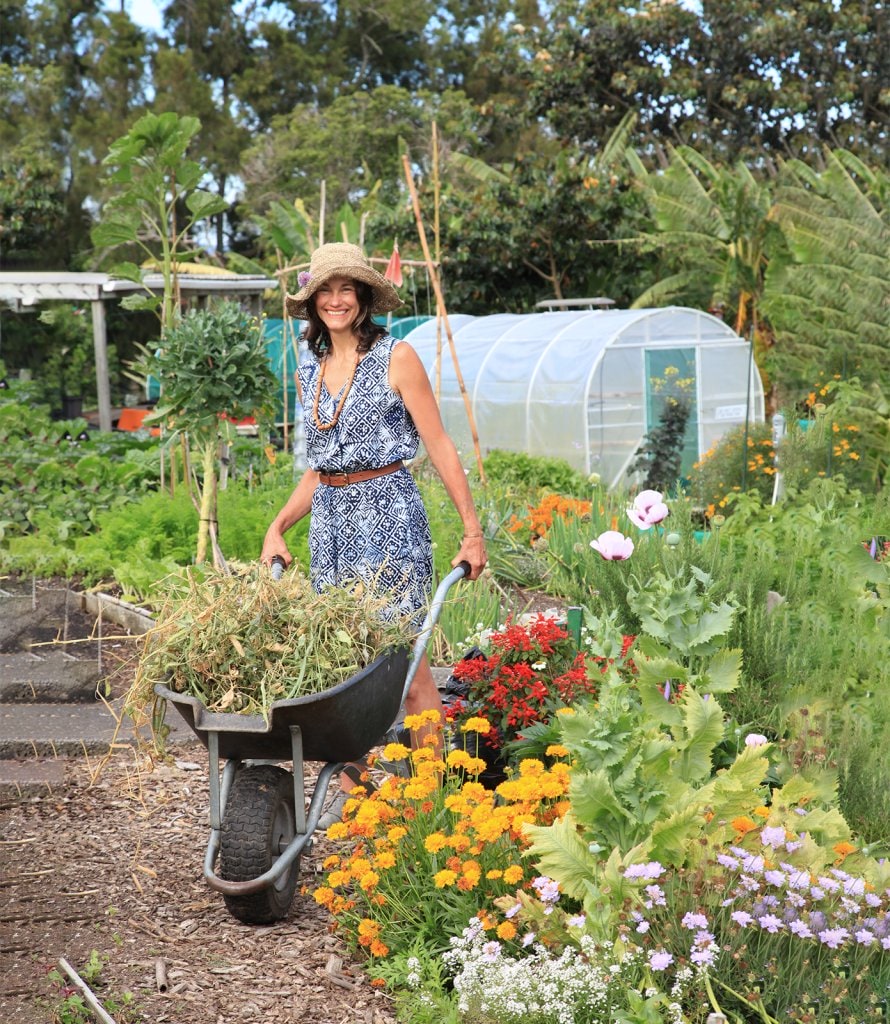
PHOTOGRAPHY BY SALLY TAGG
I loved it and was enticed to find out more, so I took up training with NorthTec on sustainable rural development, which covered horticultural practices, and at Tui Community I completed my certificate in permaculture. Then I landed a job that required me to create and coordinate a community garden at Triangle Park in Massey, Auckland, and it all developed from there.
Although I wasn’t actively gardening as a kid, along the way I was picking up knowledge from my mum and grandma. That’s mainly why I love teaching, because I want to share knowledge with other people in the same way.
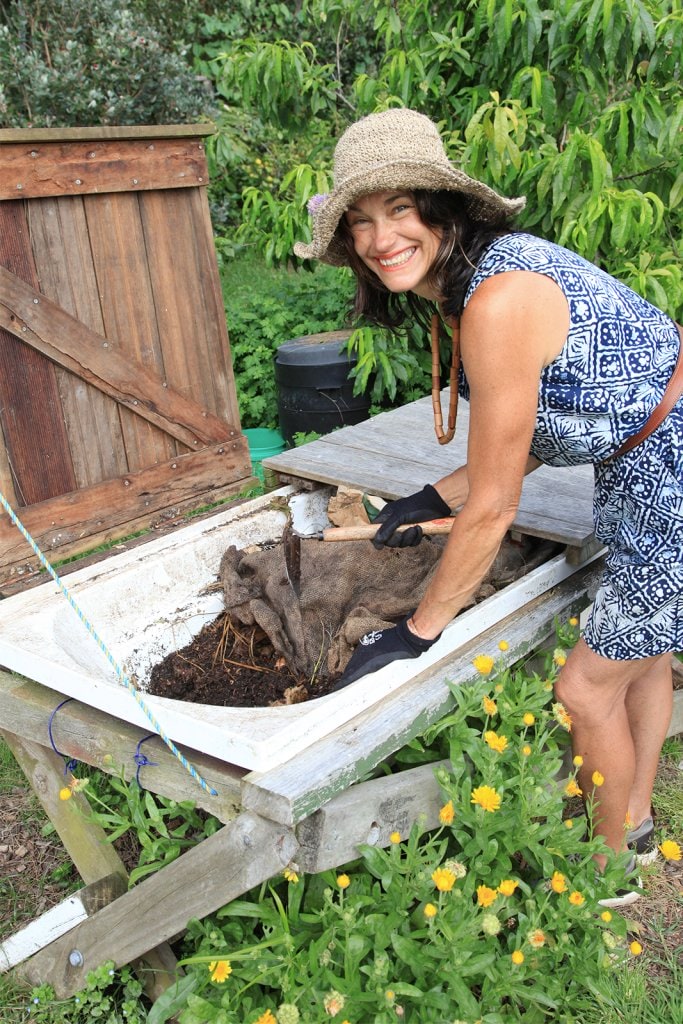
PHOTOGRAPHY BY SALLY TAGG
What do you find most satisfying in your work?
I love watching people catch the gardening bug and listening to the enthusiasm of returning volunteers and students talking about the things they’re noticing and achieving in their own gardens. And then there’s the gardening itself – it’s a journey of discovery, a wellness therapy, and I’m still learning – that doesn’t stop.
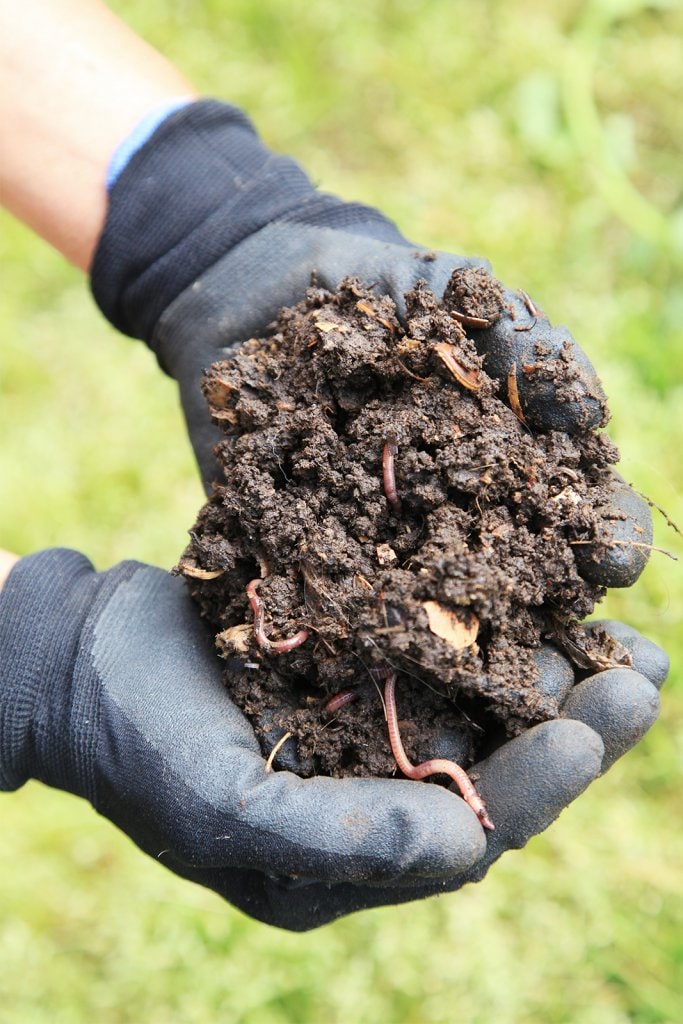
PHOTOGRAPHY BY SALLY TAGG
It sounds busy! How do you juggle everything?
My life is a garden! My work brings joy to me whichever garden I’m working in! And yes, it is busy, and I wonder how I can keep it up, but I guess since I don’t have dependants, I can give all my time to all that I love. I do have other creative projects on the go as well, and in time I’ll have to choose which serves a greater need for the community I belong to.
If you could change one thing about the way people garden, what would it be?
I’d like everyone to practise no-dig gardening, where instead of mixing up the layers of soil by digging into them and turning them over with a spade, you add layers of organic matter on top. This allows the fungal hyphae to populate the root zone of your plants to support the sharing of nutrients between them, and there’s no loss of carbon to the atmosphere, which happens when you disturb the layers of soil. I want people to work with nature, not against it, and respect the soil microorganisms.
What would your dream garden be?
A multilayered forest garden with a variety of subtropicals, fruit trees, soil-enhancing trees that fix nitrogen and provide biomass for mulching, and herbs and flowers for humans, birds and beneficial insects.
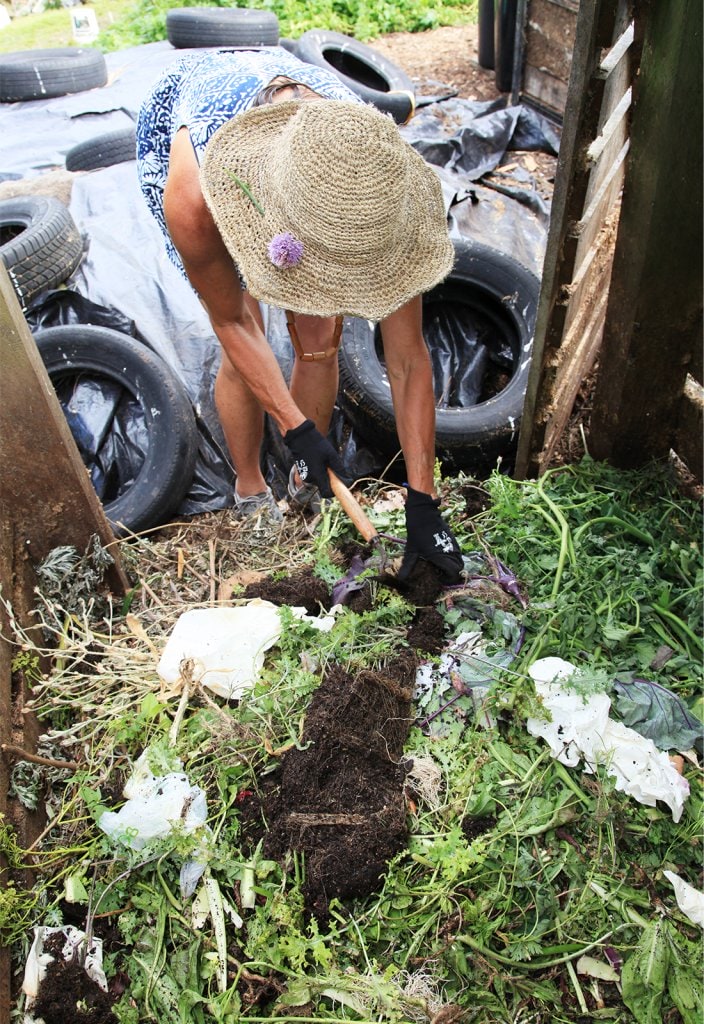
PHOTOGRAPHY BY SALLY TAGG
What’s your favourite gardening tool?
A Japanese tool called a Niwashi. It’s a hand tool that’s similar to a hoe, with a sharp point and blade-like edge that lifts most weeds with ease, and can also be used to cut stems and stalks.
What are some of the misconceptions people have about composting?
Some people think it’s too hard and that it’s smelly – which it can be if you don’t do it well. People also worry that compost heaps attract rats, but as long as you’re not putting cooked food in your heap, it won’t. Rats are everywhere anyway, and I think that everyone should have a rat trap on their property to help the native-bird population.
For more information on composting, check out The Compost Collective’s resources at compostcollective.org.nz or post any questions on their Facebook page.

